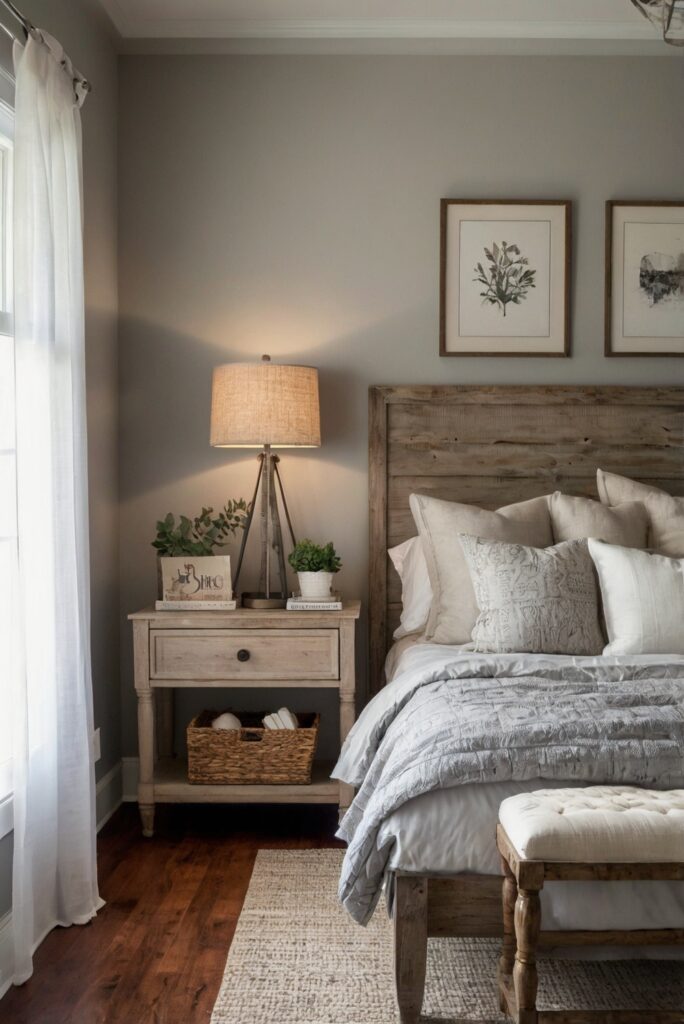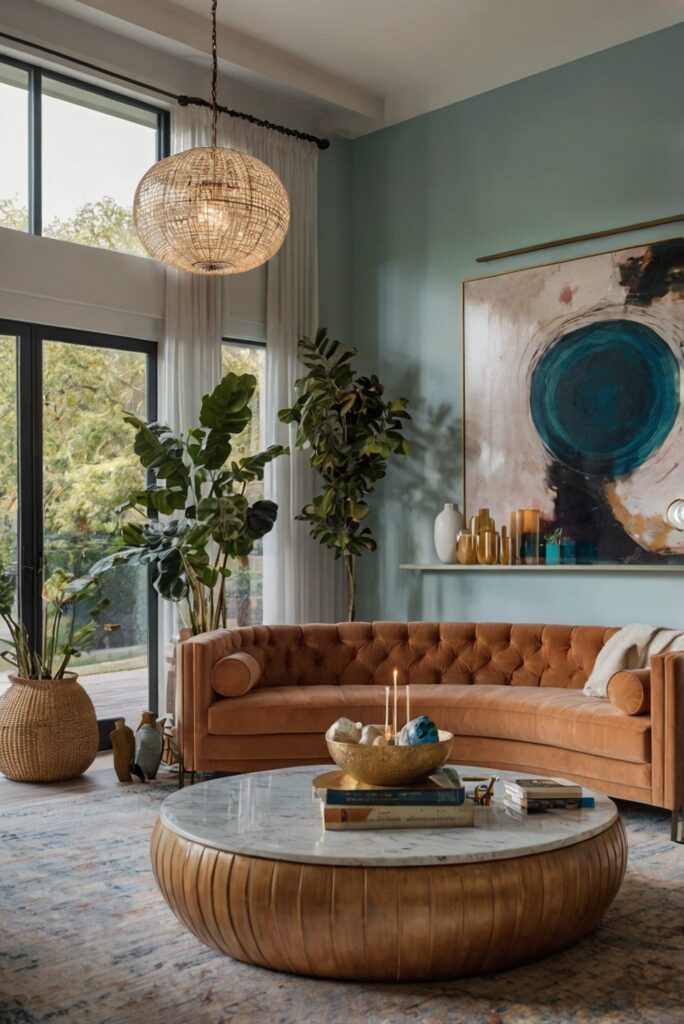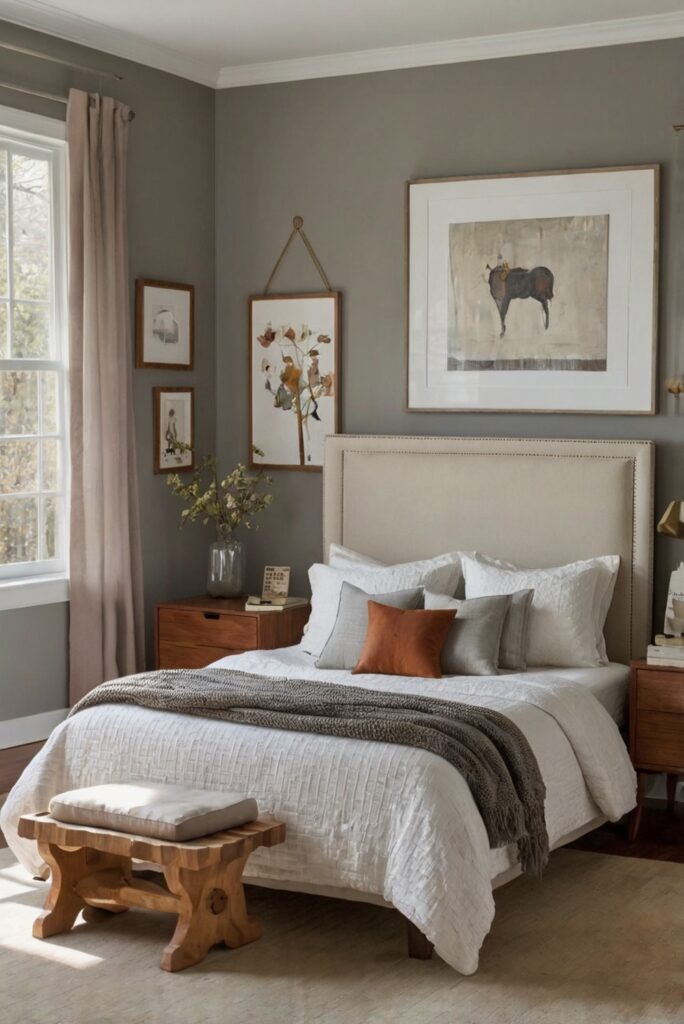Discover creative ways to incorporate painted textures or faux finishes into your bedroom decor. Enhance your space with these interior designer-approved tips!
To incorporate painted textures or faux finishes in your bedroom as part of your home decorating routine, you can start by selecting the desired textures or finishes that complement your home interior design. Space planning is essential, so ensure that the textures or finishes you choose align with the overall aesthetic of your bedroom. Opt for primer paint for walls to provide a smooth base for the application of textures or faux finishes. When selecting colors, consider paint color match to maintain a cohesive look throughout the room. Benefits of painted textures or faux finishes include adding depth and character to your space, while risks may include improper application leading to a less-than-desired outcome. To stay organized, create a timeline for the project and allocate specific tasks to avoid overwhelm. Be sure to consult with professionals such as designers or paint specialists for guidance on achieving the best results in your bedroom.
1. Select textures or finishes that align with your home interior design.
2. Opt for primer paint to create a smooth base for application.
3. Choose colors carefully for a cohesive look.
4. Consider consulting professionals for guidance on achieving desired results.
Choose the Right Texture or Faux Finish:
When incorporating painted textures or faux finishes in your bedroom, the first step is to choose the right texture or faux finish that aligns with your design aesthetic. Consider the style of your bedroom – whether it’s modern, traditional, rustic, or eclectic – and select a texture that complements it. Options include smooth finishes for a sleek look, textured finishes for added depth, or faux finishes like marble, wood, or concrete for a unique touch.
Prepare the Surface:
Before applying any texture or faux finish, it’s crucial to prepare the surface properly. This involves cleaning the walls thoroughly to remove any dirt, dust, or grease. Repair any cracks or holes in the wall and sand them down for a smooth surface. Use a primer to ensure better adhesion of the texture or faux finish and allow it to dry completely before proceeding.
Choose the Right Tools:
Having the right tools is essential for achieving a professional-looking textured or faux finish in your bedroom. Depending on the texture or finish you choose, you may need tools like paintbrushes, rollers, trowels, sponges, or stencils. Invest in high-quality tools to ensure a smooth application and a flawless result.
Experiment with Different Techniques:
Once you have chosen the texture or faux finish, it’s time to experiment with different techniques to create the desired look in your bedroom. For textured finishes, you can use techniques like stippling, ragging, sponging, or combing to achieve different effects. For faux finishes, techniques like color washing, glazing, or dragging can mimic the appearance of materials like wood, marble, or metal.
Finishing Touches:
After applying the texture or faux finish to your bedroom walls, don’t forget the finishing touches to complete the look. Consider adding decorative elements like moldings, trims, or stenciled designs to enhance the overall aesthetic. Additionally, choosing the right lighting fixtures and accessories can further accentuate the textured or faux finish walls.
In conclusion, incorporating painted textures or faux finishes in your bedroom can elevate the design and create a unique and personalized space. By following these steps and tips, you can achieve a professional-looking result that reflects your style and personality. Remember to choose the right texture or faux finish, prepare the surface properly, select the right tools, experiment with different techniques, and add finishing touches to complete the look. With a little creativity and attention to detail, you can transform your bedroom into a stylish and inviting retreat.
1. How can I incorporate painted textures in my bedroom?
To incorporate painted textures in your bedroom, you can start by choosing a color scheme that complements your existing decor. Consider using techniques such as sponge painting, color washing, or rag rolling to add texture to the walls. You can also experiment with stencils or decals for a more intricate design. Don’t be afraid to mix and match different textures to create a unique look that reflects your style.
2. What are some popular faux finishes for bedrooms?
Some popular faux finishes for bedrooms include faux wood, marble, concrete, and metallic finishes. These finishes can add a touch of elegance and sophistication to your bedroom while creating a cozy and inviting atmosphere. Consider using a faux finish on an accent wall or ceiling to make a bold statement without overwhelming the space.
3. Are there any benefits to incorporating painted textures in a bedroom?
Incorporating painted textures in a bedroom can have several benefits. Textured walls can add depth and dimension to a room, making it feel more visually interesting. Additionally, textured finishes can help hide imperfections in the walls and create a more cohesive look. By incorporating painted textures in your bedroom, you can personalize the space and create a unique ambiance that reflects your personality.
4. What are some tips for incorporating faux finishes in a bedroom?
When incorporating faux finishes in your bedroom, it’s important to consider the overall style and color scheme of the room. Choose finishes that complement your existing decor and furniture to create a cohesive look. Experiment with different techniques and textures to find the perfect balance for your space. Don’t be afraid to mix and match finishes to create a custom look that suits your personal taste.
5. How can I maintain painted textures or faux finishes in my bedroom?
To maintain painted textures or faux finishes in your bedroom, it’s important to clean them regularly to remove dust and dirt. Use a soft cloth or sponge to gently wipe down the walls, taking care not to scrub too hard and damage the finish. If you notice any chips or scratches, touch them up with a small amount of paint or faux finish to keep the walls looking fresh. Avoid using harsh chemicals or abrasive cleaners, as these can damage the finish and dull the texture over time.



